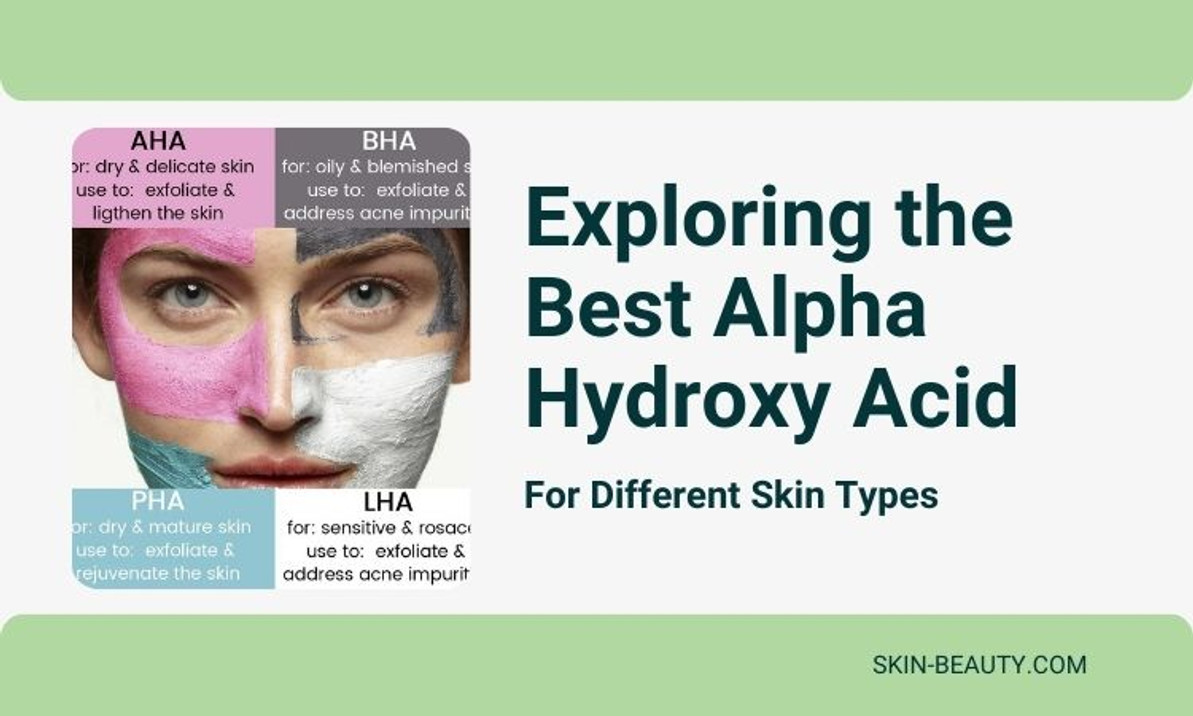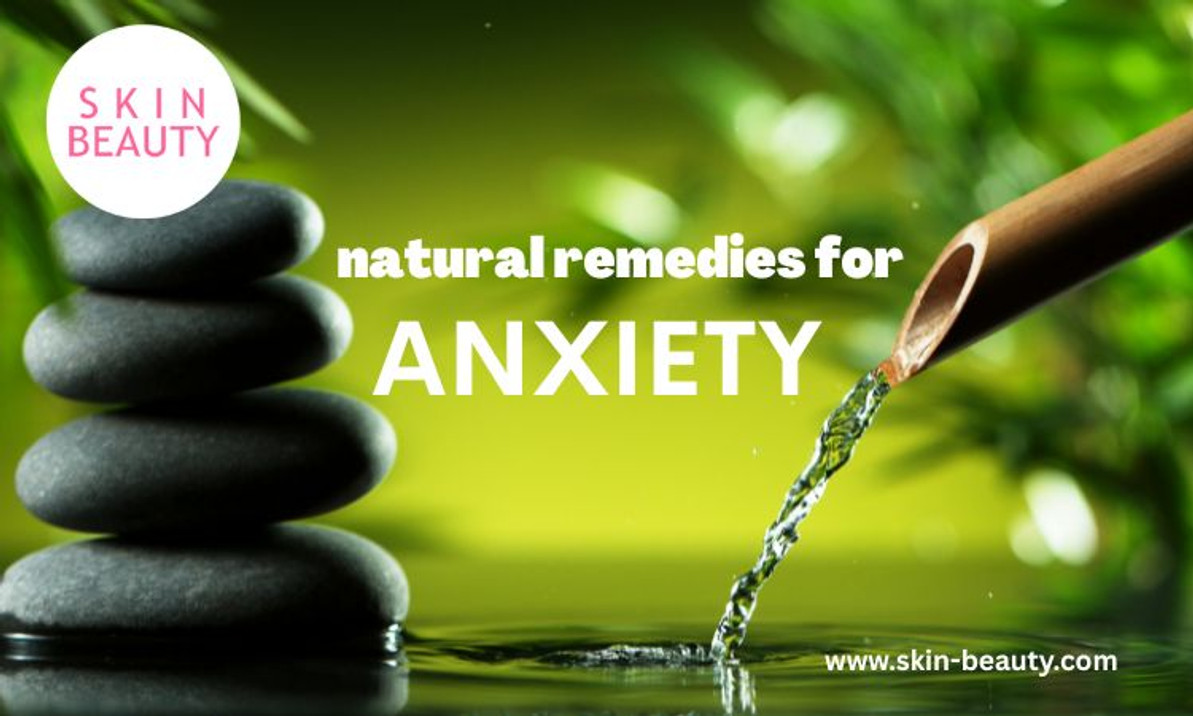Best Alpha Hydroxy Acid for Different Skin Types
Exploring the Best Alpha Hydroxy Acid for Different Skin Types
Alpha Hydroxy Acids (AHAs) are a popular choice in skincare for their ability to exfoliate the skin, promote cell turnover, and improve skin texture and tone. However, not all AHAs are created equal, and the best one for your skin type can vary. Here, we'll explore the different types of AHAs and help you determine the one that best suits your unique skin needs.
What is Alpha Hydroxy Acid (AHA) and How Does It Benefit Your Skin?
AHAs are a group of natural acids found in foods. They are commonly used in skincare products for their exfoliating properties. By removing the top layer of dead skin cells, AHAs reveal fresher, smoother skin. AHAs penetrate the skin as deeply as the dermis, effectively targeting various skin concerns. Common AHAs include glycolic, lactic, mandelic, and citric acids.
Benefits of Using AHAs to Exfoliate the Skin
One of the key benefits of AHAs is their exfoliating properties. By removing dead skin cells on the surface of your skin, AHAs help reveal a more radiant and even skin tone. Regular AHAs can also make the skin smoother and improve its overall texture.

How AHAs Promote Radiant Skin
AHAs promote radiant skin by encouraging cell turnover and boosting collagen production. This results in fresher, younger-looking skin with reduced signs of aging, such as fine lines and wrinkles. Additionally, AHAs can make the skin more sensitive to sunlight, so applying sunscreen when using these products is crucial.
Choosing the Right AHA for Your Skin Type
Before choosing an AHA, it’s important to identify your skin type. Here are the general categories:
- Normal Skin: Balanced skin, not too oily or dry.
- Dry Skin: Skin that often feels tight, rough, or flaky.
- Oily Skin: Skin that produces excess oil, often shiny with larger pores.
- Combination Skin: A mix of oily and dry areas, typically with an oily T-zone (forehead, nose, and chin) and dry cheeks.
- Sensitive Skin: Skin prone to redness, irritation, and reaction to products.
Best Alpha Hydroxy Acid for Each Skin Type
Glycolic Acid
- What it is: Derived from sugar cane, glycolic acid is the smallest AHA molecule, allowing it to penetrate the skin deeply and quickly.
- Benefits: It is effective at exfoliating the skin, improving texture, and reducing the appearance of fine lines and wrinkles.
- Usage: Due to its potency and deep penetration capabilities, it is best for those with normal skin. It is also good for acne-prone skin.
Lactic Acid
- What it is: Derived from milk, lactic acid is larger than glycolic acid, which means it doesn’t penetrate as deeply and is gentler on the skin.
- Benefits: Hydrates while exfoliating, making it ideal for dry skin. Its mild nature also makes it suitable for sensitive skin types.
- Usage: This product is excellent for those seeking gentle yet effective exfoliation with added hydration. It is also good for dry or sensitive skin.
Mandelic Acid
- What it is: Derived from bitter almonds, mandelic acid has larger molecules that penetrate the skin slowly, making it less irritating.
- Benefits: It has antibacterial properties that can help reduce acne. It’s also effective at regulating oil production and minimizing pore size.
- Usage: Ideal for sensitive, oily, or acne-prone skin looking for a gentle yet effective exfoliant.
Citric Acid
- What it is: Derived from citrus fruits, citric acid is a mild AHA with antioxidant properties.
- Benefits: It helps even out skin tone and can brighten the complexion. It also provides gentle exfoliation suitable for combination skin types.
- Usage: Perfect for balancing the varying needs of combination skin, offering gentle exfoliation and brightening.
Salicylic Acid
- What it is: Salicylic acid is a beta hydroxy acid (BHA) derived from willow bark. It is oil-soluble, allowing it to penetrate deep into pores.
- Benefits: It helps remove dead skin cells from the surface of the skin. It reduces redness and swelling associated with acne. It penetrates and cleans out pores, reducing blackheads and whiteheads. It helps regulate and reduce excess oil production.
- Usage: Ideal for those with acne-prone skin.

Exploring Different Types of Alpha Hydroxy Acids
Glycolic Acid vs. Lactic Acid: Which is Best for You?
Both glycolic and lactic acids are popular choices in skincare products. Glycolic acid is more potent and works well for exfoliating the skin deeply. On the other hand, lactic acid is gentler and suitable for sensitive skin types. Choosing between the two depends on your skin goals and tolerance levels.
Mandelic Acid and Its Benefits for Skin
Mandelic acid is another gentle AHA with exfoliating properties suitable for sensitive skin types. It improves skin texture, reduces hyperpigmentation, and promotes collagen production. Mandelic acid is also effective in addressing acne concerns without causing excessive dryness.
Comparing Beta Hydroxy Acids with AHAs
While AHAs primarily work on the skin's surface, beta hydroxy acids like salicylic acid penetrate deeper into the pores. This property makes them effective in targeting acne and blackheads. Combining AHAs and BHAs can provide comprehensive exfoliation and clear out clogged pores for smoother, clearer skin.
How to Incorporate AHAs into Your Skincare Routine
Choosing the Best AHA Products for Your Needs
When selecting AHA products, consider your skin type and concerns. If you have sensitive skin, opt for lower concentrations and gradually increase the strength as your skin builds tolerance. Look for formulations that combine AHAs with moisturizing ingredients like hyaluronic acid to maintain skin hydration.
Tips for Using AHAs to Exfoliate and Improve Skin Texture
To exfoliate the skin effectively with AHAs, gradually introduce them into your routine. Use them initially once or twice a week, then gradually increase the frequency as your skin adjusts. Remember to follow up with a moisturizer to keep your skin hydrated and protected.
Maintaining Skin Moisture While Using AHAs
Since AHAs can make the skin more sensitive and prone to dryness, it's essential to incorporate a moisturizer into your routine. Choose a hydrating formula that replenishes lost moisture and helps restore the skin's natural barrier. This will prevent dryness and irritation while using AHAs.
Addressing Common Concerns About Using AHAs
Can AHAs Penetrate the Skin and Deliver Results?
Yes, AHAs can penetrate the skin and deliver visible results. By exfoliating the skin and promoting cell turnover, AHAs can help reduce fine lines, improve skin tone, and reveal smoother, brighter skin. Consistent use of AHAs in your skincare routine can lead to noticeable improvements over time.
Benefits of AHAs for Fine Lines and Skin Tone
AHAs are beneficial for targeting fine lines, wrinkles, and uneven skin tone. Their exfoliating properties help smooth the skin's surface, minimizing the appearance of fine lines, and promoting a more even complexion. Regular use of AHAs can contribute to a more youthful and radiant skin appearance.
Cautions for Sensitive Skin Types When Using AHAs
Individuals with sensitive skin should exercise caution when using AHAs to avoid irritation. Start with low concentrations and perform a patch test before applying the product to your face. If you experience any redness, stinging, or discomfort, discontinue use immediately. It's crucial to listen to your skin's needs and adjust your routine accordingly.
Choosing the right AHA for your skin type can make a significant difference in your skincare routine. Whether you have normal, dry, oily, combination, or sensitive skin, there’s an AHA that can help you achieve smoother, brighter, and more youthful-looking skin. By understanding your skin’s unique needs and the benefits of each type of AHA, you can find the perfect match to enhance your skincare regimen.
Recent Posts
-
Natural Remedies for Anxiety
Natural Remedies for Anxiety Everyone experiences anxiety symptoms every now and then. We live in a …Mar 28th 2025 -
Hair Loss Treatment
Hair Loss Treatment for Every Stage of Thinning Hair Hair loss is a common concern that affects mill …Mar 18th 2025 -
The Best Face Sunscreen Protection
The Best Face Sunscreen Protection: Top Picks for Every Skin Type Summer is just around the corner! …Mar 10th 2025




